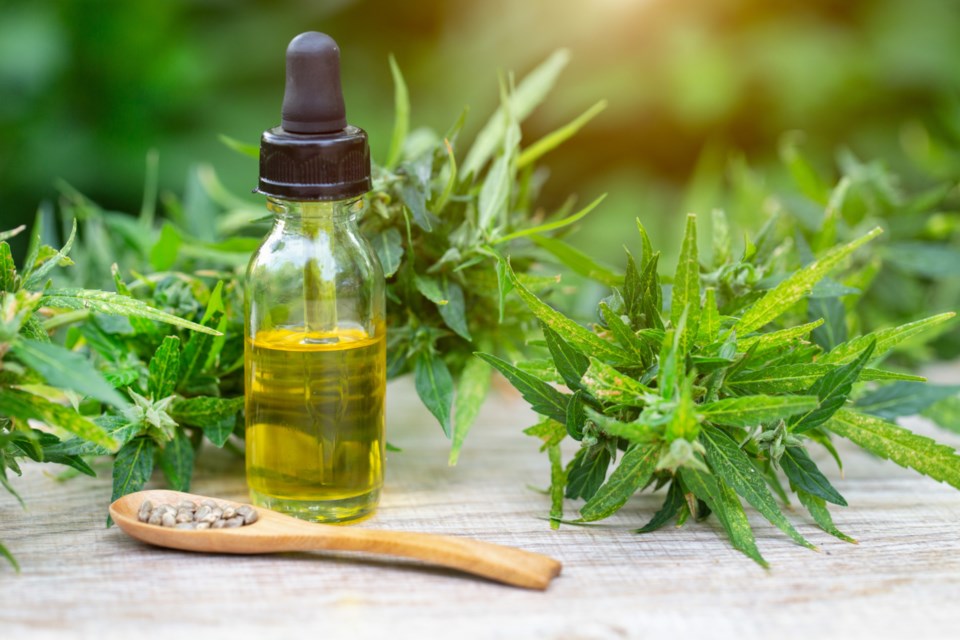One of the fastest growing and most wide-ranging sectors of scientific inquiry these days is cannabis. Trained chemists are needed in the cannabis industry to not only ensure the proper potency and purity of cannabis products but also to explore the seemingly unlimited potential of its chemical properties.
Trained chemists are in demand across the country to fill the need in this burgeoning industry. Students looking to enter the lucrative field of cannabis chemistry need go no further than Lake Superior State University to receive top notch training in this field.
“Truly experienced staff have been stretched thin so there is a need for a trained workforce,” says Steve Johnson, PhD, Dean of the College of Science and the Environment at LSSU. The industry is expected to add 500,000 jobs in 2022 and more and more states are legalizing cannabis for medical and recreational use. Hemp is already legal in all 50 states.
Johnson is quick to dispel some of the preconceptions of the program. He says students graduating with a cannabis chemistry degree will be chemists first. “Obviously, you would be a little concerned,” says Johnson, recalling when the degree was first being considered. “Like, ‘are they attracted to the idea of studying cannabis or cannabis chemistry?’ We found out really quickly it was cannabis chemistry; it’s a chemistry degree with serious scientific discovery.”
Johnson says students will have a lot of math, chemistry, and biology under their belts when they graduate from the program. “They will be well-paid scientists when they graduate, but let's say they want to pivot out of that, they’re still chemists, the instrumentation is largely the same.”
The instrumentation in LSSU’s chemistry lab is impressive and surely matches some of the best chemistry labs in the nation. Agilent Labs, a world-renowned maker of state-of-the-art analytical and diagnostic instruments, donated over 3 million dollars worth of equipment to the lab. For instance, one widely used piece of equipment in LSSU’s lab, the Agilent Ultivo LC-QQQ, a spectrometer used for measuring wavelengths, retails at around $650,000.
“Students will be able to use these instruments to pull the data out and be able to interpret, disseminate and troubleshoot,” says Johnson. He added that despite the growth of the program (there are currently over 100 students seeking a degree) the labs are still small enough for a lot of one-on-one instruction and hands-on experience, something that might not be available at larger institutions.
“We’re keeping lab sites small enough so students can get hands-on experience with the instruments,” says Johnson. “Larger universities may not be able to offer hands-on opportunities or students may have to work in groups of 5.”
Todd Savard, of St. Ignace has been receiving the academic and hands-on training the program offers and is looking forward to putting his chemistry degree to work when he graduates. He says he’s an “entrepreneur at heart” and wants to someday own a cannabis microprocessing facility.
“I want to have my own micro business or production line.” says Savard. “The cannabis chemistry program is one way for me because I don’t have a lot of money and it would be a good way to market myself to future investors in my business.” He added that if the business doesn’t go as planned he’ll have a degree to fall back on in a very in-demand field. With a cannabis chemistry degree Savard could be working in various capacities in the cannabis industry, including compliance and processing.
“One of the things I want to do is innovation and I think there is going to be a lot of innovation in the way it (cannabis) can be delivered in your system,” says Savard. According to researchers there are over 100 cannabinoids in cannabis, many with undiscovered potential. These chemical compounds are found in the trichomes in the flower portion of the cannabis plant and contain THC and CBD. Cannabis in various forms is currently used to treat pain, anxiety, autism, PTSD, epilepsy, and for recreational purposes.
Students interested in cannabis chemistry aren’t just limited to a BA in Cannabis Chemistry. LSSU also offers an associates and an online certificate. In addition, LSSU offers a cannabis business degree. Johnson has plans on molding these two degrees into one and also adding a horticultural component to the learning experience.Space is currently available adjacent to the labs to grow hemp plants, which will provide hands-on experience in the horticultural aspects of cannabis.
Currently, students can only experiment with the hemp flower, which has less than 0.3% THC as required under the 2018 Farm Bill. Johnson says as a federally funded institution they aren’t allowed to test anything over 0.3% THC in the lab but hopes that in the future this will change for the purpose of furthering scientific inquiry.
Cannabis is undoubtedly on the frontier of scientific inquiry and LSSU is providing the tools to discover its potential.
“There is much more to discover,” says Savard, “the plant baffles me, it really does.”
